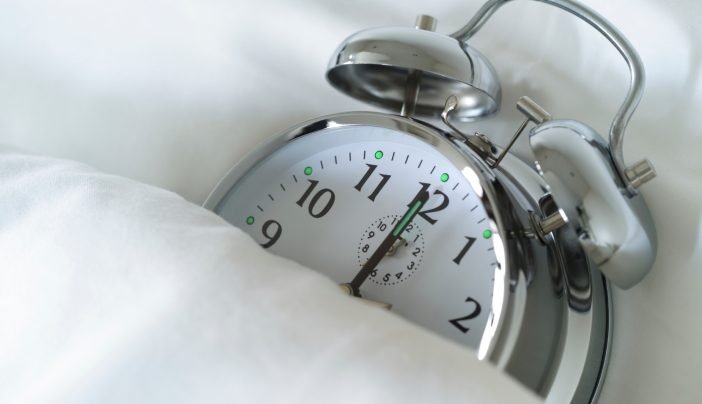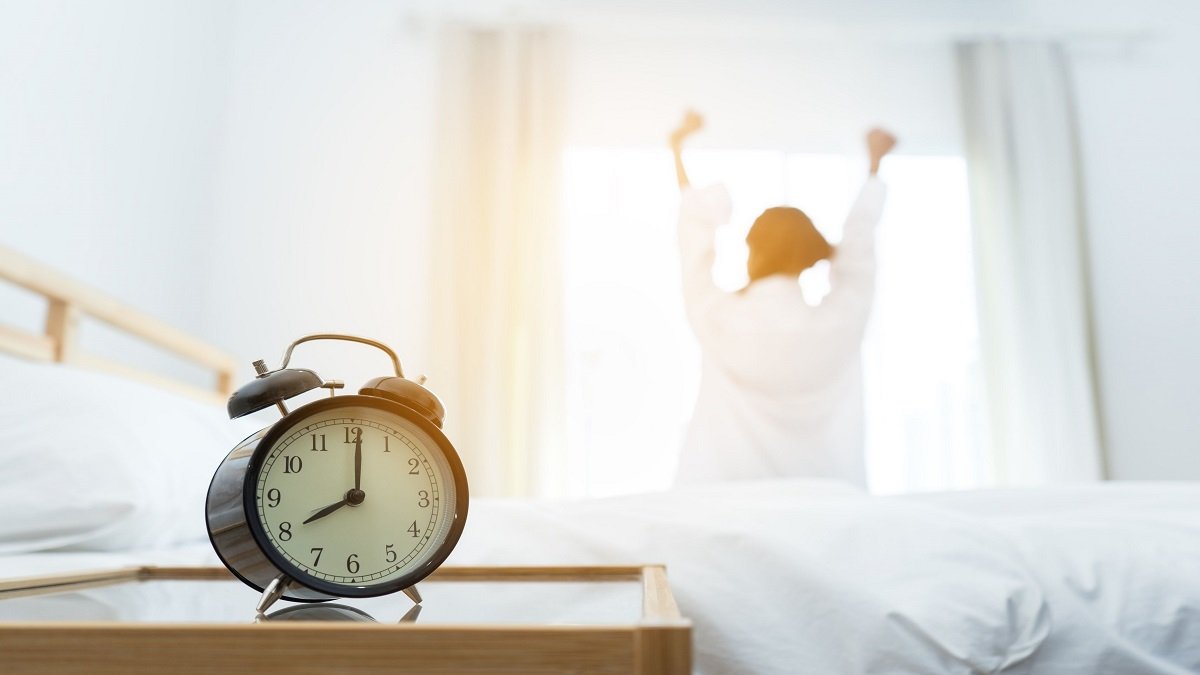Have a lot of sleepless nights? You’re not alone. Several studies suggest that people who have trouble sleeping regularly may be more likely to have cancer and pass away from it. Examples include shift work nurses who have spent years adjusting their sleep habits to fit work shifts, and long-haul flight attendants who often sleep in various time zones and at different times of the day. You need healthy sleep habits.
Researchers are working to understand the relationship between sleep and cancer. We must give sleep the importance it deserves as we wait for additional information. Assess your daytime mood to determine if you’re receiving enough sleep.
Rather than drowsy or foggy, you should feel refreshed, ready for the day, and capable of doing your duties. Examine your sleeping habits if you have problems falling asleep. You may improve the quality of your sleep with little behavioral adjustments and a healthy lifestyle.
These Good Sleep Habits Are Needed

1. Have A Regular Sleep Schedule
Having a consistent sleep schedule is one of the healthy sleep habits. Even on weekends, make an effort to go to bed and get up at around the same time each day. Supporting your body’s natural sleep cycle, or internal clock, may help you go to sleep and get up more easily each day.
Maintaining a routine may also aid in lowering afternoon drowsiness. Make sure you can obtain 7 to 8 hours of sleep every night at the time you choose to go to bed.
2. Establish A Calming Bedtime Routine And Follow It
You may relax and get ready for sleep by following a soothing nighttime ritual. Maintaining consistency throughout the process aids in your body’s recognition of nighttime. You may be able to get to sleep faster with this.
About 30 to 60 minutes before you go to bed is the ideal time to begin your regimen. You can do whatever helps you feel the most at ease as long as it doesn’t require using a blue light-emitting gadget. Here are some suggestions:
- Have a warm shower or bath. Not only does the water feel soothing at the time, but the subsequent dip in body temperature as you cool down might put you to sleep.
- If you want to help your muscles relax and release tension, try some yoga or mild stretches.
- Meditate for a short while to help relax your body and mind.
- Try concentrating on your breathing as you listen to some calming music.
- Take some time to read a book, but steer clear of blue-light-emitting electronic reading gadgets.
- Steer clear of anything too intense or demanding, such as laborious discussions or projects.
3. Turn Off All Electronics Before Going To Bed
Turning all gadgets off is one of the tips for a healthy sleep routine. Blue light, which is emitted by electronics like phones, may lower melatonin levels in the body. It’s comparable to how exposure to sunshine may heighten feelings of awakeness.
The hormone that regulates your sleep/wake cycle is called melatonin. It might be more difficult to fall asleep when your energy levels are low. Blue light-emitting devices may also keep your brain active, which makes it more difficult to fall asleep.
Even if you’re not aware of it, keeping your phone next to your bed might cause sleep disturbances. Your sleep may be disturbed by unexpected light bursts in the middle of the night, buzzing, and message alerts.
4. Avoid Alcohol Before Going To Bed
Many individuals now feel more stressed and alone at home as a result of disrupted habits and the unpredictability of the epidemic. Because of this, several individuals started working as bartenders and developed greater drinking habits as a way to deal with their stress, anxiety, and rage throughout the epidemic.
Even though alcohol could make you feel exhausted, it might also interfere with your ability to sleep at night. Find out what physicians wish people understood about drinking too much alcohol.
5. Exercise Daily
Having regular exercise is one of the healthy sleep habits. Aerobic exercise for as little as 30 minutes a day may enhance your general health and quality of sleep. The advantages of exercising outdoors may be amplified since exposure to natural light helps balance your circadian rhythm.
Don’t worry if you are unable to go outdoors. Frequent exercise indoors might also improve your quality of sleep. However, refrain from working out an hour or two before going to bed. Your body temperature and activity levels may rise as a result, making it more difficult for you to fall asleep. Try practicing stretches or yoga if you want to engage in some kind of exercise later in the day.
6. Watch Your Caffeine Intake
After consuming caffeine, its effects might last for three to seven hours (Trusted Source). This implies that you could stay up and aware for far longer than you’d want after having a cup of coffee in the afternoon.
Although it’s generally advisable to restrict your caffeine use to the morning, bear in mind that each person’s tolerance for the drug varies. While some individuals may be able to stop drinking by mid-afternoon, others would need to stop much earlier to go to sleep. You may be more susceptible to the effects of caffeine the less of it you take in.
7. Use Your Bed Only For Sleep & Intimacy
It might be tempting to read, work, watch TV, speak on the phone, or engage in other things while lying in a comfy bed. But it’s crucial to save your bed for sleeping and intimate moments. It becomes simpler to fall asleep as a result of strengthening the connection in your brain between your bed and sleep.
While reading might help you unwind before bed, books themselves have the potential to disturb your sleep if they keep your mind active. Instead, try reading on the sofa before going to bed.
8. If You Are Unable To Fall Asleep, Get Out Of Bed
This is an intricate rule with psychological roots. Don’t lay in bed and mope if you haven’t been able to fall asleep for more than twenty minutes. Get up and engage in a soothing, non-stimulating activity, such as journaling, mild stretching, reading, or meditation (keep in mind: no TV or phones!).
When you’re tired, go back to bed. Anxious about not being able to sleep? Staying in bed will just make bad connections between bed and sleep, which might ultimately send you into a never-ending cycle of insomnia. Instead of serving as a place where you toss and turn, your bed ought to be a haven for rest.
9. Make Your Sleeping Space Conducive To Your Needs
Your sleeping environment’s configuration may make it easier for you to go to sleep and remain asleep. The ideal temperature for sleeping in a bedroom is usually between 60 and 67°F (15.6 and 19.4°C).
It’s also critical to check that your pillows, mattress, and bed linens are cozy. It could be simpler for you to fall asleep and remain asleep if you are more comfortable. Do you have any recommendations? Explore our marketplace, which offers editor-trusted and expert-verified choices for mattresses and pillows.
A decent set of earplugs or a white noise machine may help you sleep through the night if you’re a light sleeper or have loud neighbors. Additionally, to make your sleeping environment as dark as possible, you may want to think about using blackout curtains or an eye mask if your bedroom receives too much light. This is one of the helpful tips for a healthy sleep routine.
Final Thoughts
Adopting sound sleeping practices is known as sleep hygiene. Your actions throughout the day and just before bed might have an impact on how well you sleep. You may attempt a few different healthy sleep habits to fall asleep more quickly and remain asleep for hours at a time if you have trouble falling or staying asleep. The majority of them focus on enhancing your sleeping habits.
Maintaining a regular pattern, exercising often, keeping your bedroom dark and at a suitable temperature, and being mindful of what you eat and drink may all influence how well you sleep.
Make sure to see your doctor again if you have insomnia or irregular sleep patterns. They can identify if there is an underlying medical disease causing your sleep issues and may provide you with the necessary therapy.
FAQ
Q: Which sleep schedule is optimal for your health?
A: Seven to eight hours of sleep each night should be the goal for most individuals. Inspect your sleeping habits if you have problems falling asleep. You may better the quality of your sleep with a few behavioral adjustments and a healthy lifestyle.
Q: Which natural sleep aid is the safest?
A: The safety of sleep aids varies and may be affected by using any other supplements, drugs, or underlying medical issues. For the majority of healthy individuals, short-term usage of supplements like melatonin, valerian root, and magnesium is probably safe.
Q: When is the physiologically optimal time to sleep?
A: The optimal bedtime for your schedule may be determined by counting backward by 7 hours from when you have to get up in the morning (the required minimum each night for adults). For instance, you need to think about going to bed by 11 p.m. if you have to get up by 6 a.m.










